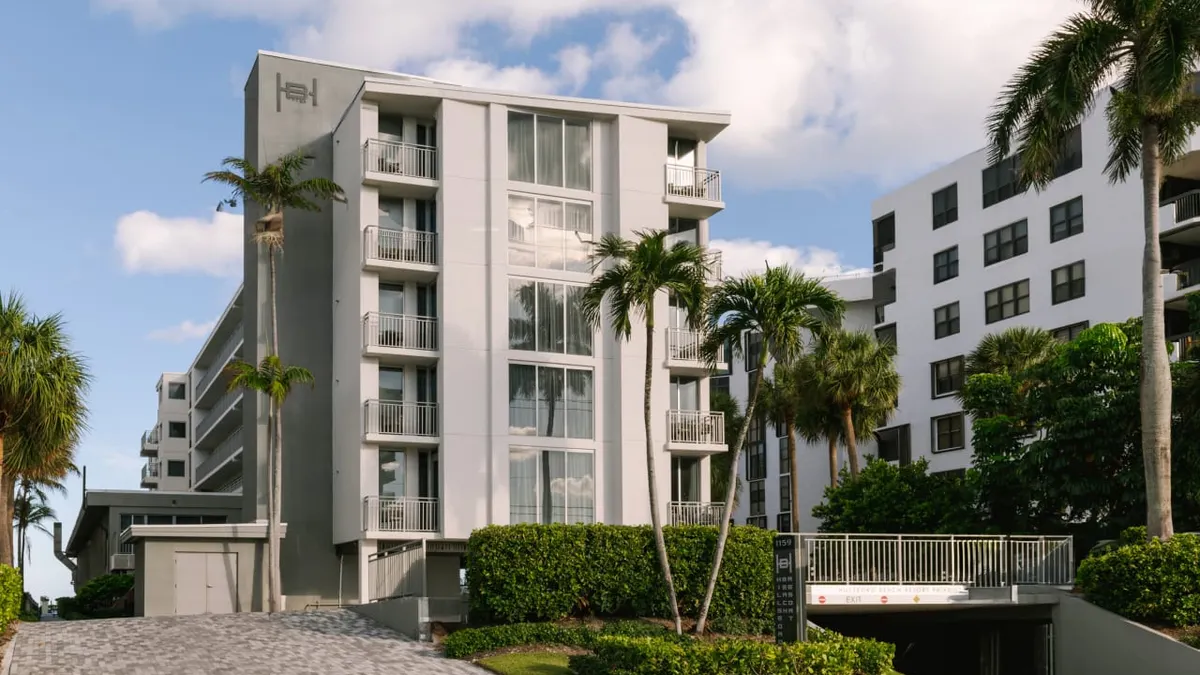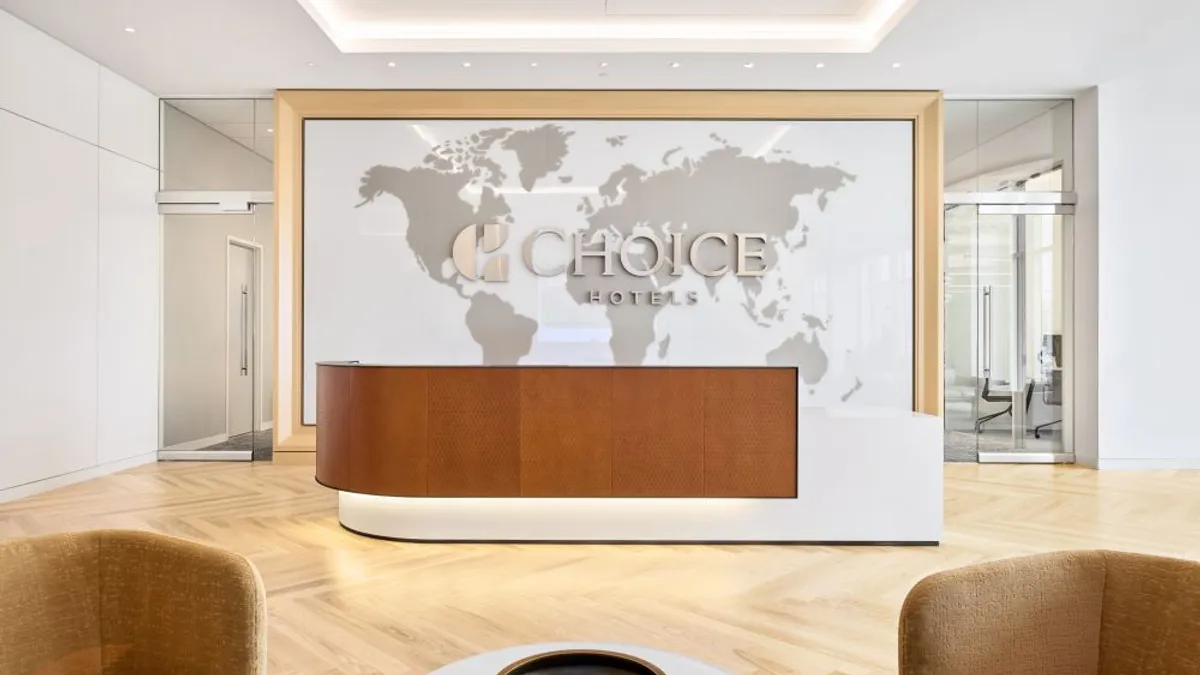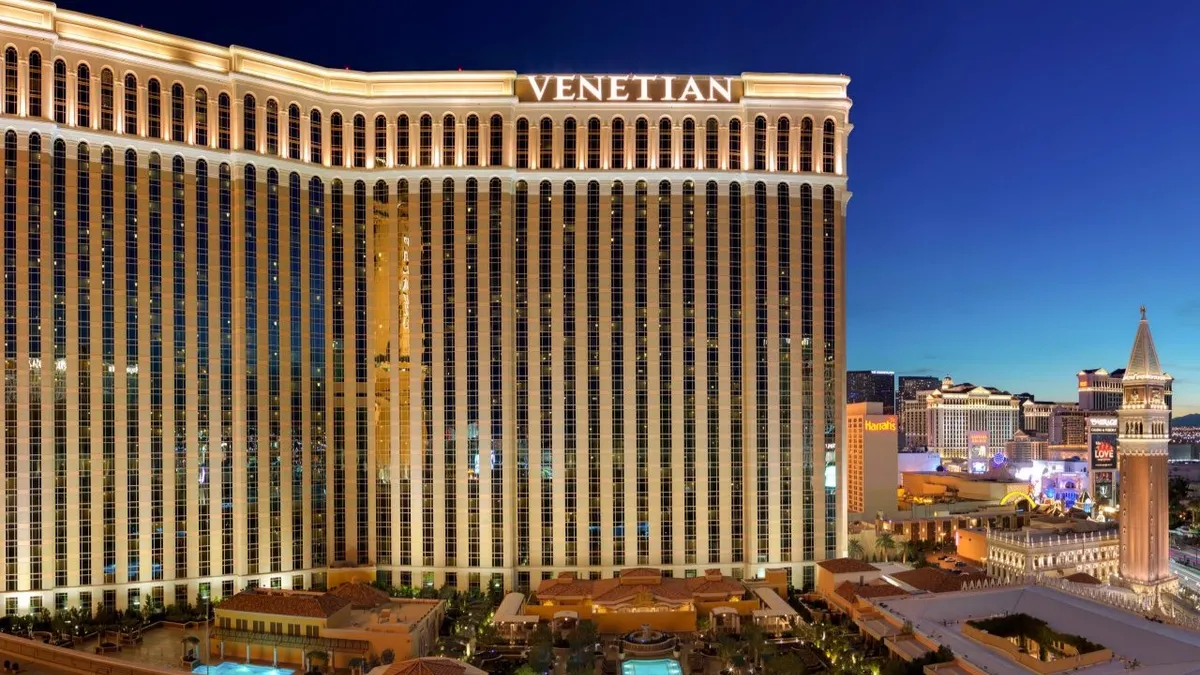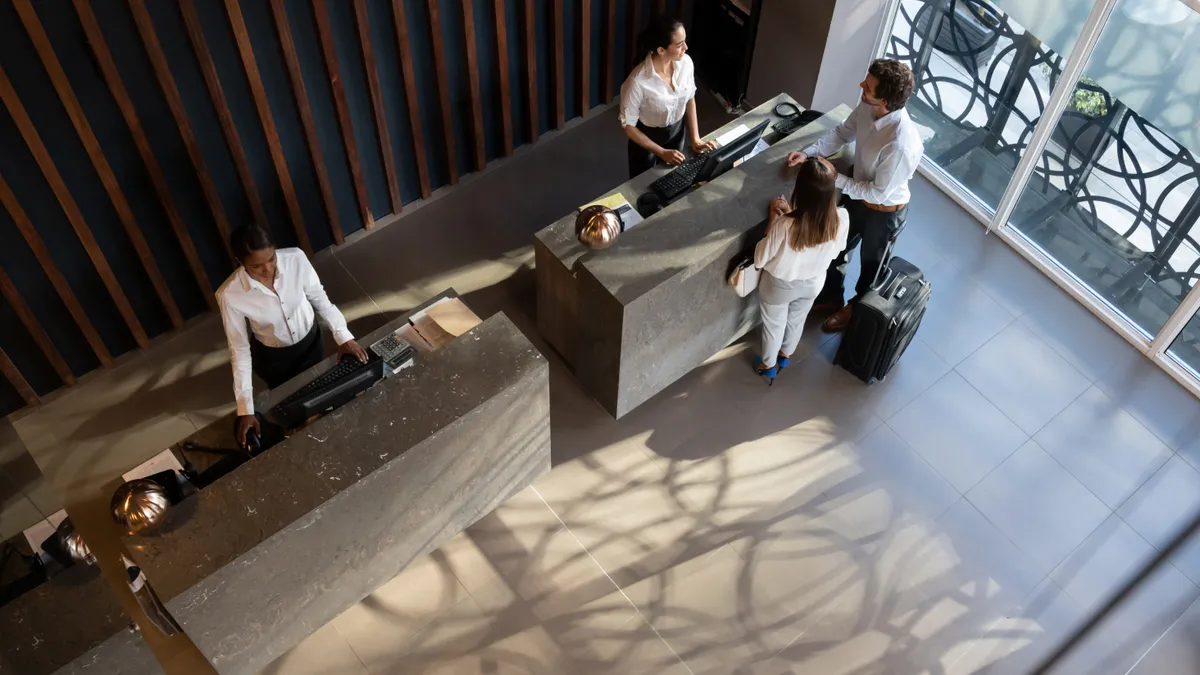On Sunday Nov. 9, Roman Pedan, founder and CEO of apart-hotel company Kasa, was at one of his company’s properties in Hillsboro Beach, Florida, chatting with its front-desk team. The property and team had previously operated under Sonder.
It was there where Pedan heard an intriguing rumor from one of the Kasa team members: Sonder was about to lay off all of its employees and close all of its properties. The hearsay was confirmed when later that day Marriott International announced it would terminate its long-term licensing contract with Sonder due to Sonder’s default, and Sonder subsequently announced its wind-down.
The news was “both unsurprising and shocking,” Pedan said, echoing similar sentiments that hospitality professionals shared with Hotel Dive last week. “The way that it happened — so abruptly — was shocking,” he told Hotel Dive Thursday. However, the fact that it happened at all was less so, since Sonder’s public filings in the months prior showed “a very fragile balance sheet with a significant amount of obligations across their debt stack,” Pedan said. Marriott laid out some of Sonder’s financial discrepancies in an emergency motion filed with the U.S. Bankruptcy Court for the District of Delaware on Nov. 14.
Pedan was familiar with Sonder’s financial history, having paid close attention to the company over the preceding 18 months. During that time, Kasa had taken over roughly 10 Sonder properties, converting them under Kasa’s brand and management.
In the wake of Sonder’s bankruptcy, Kasa plans to continue that strategy. The company is currently in talks with Sonder owners across the U.S. and Canada to rehabilitate properties left shuttered in the last week. The goal? Preserving revenue for owners and creating continuity with guests, in addition to growing Kasa’s portfolio in target markets, Pedan said.
In a conversation with Hotel Dive, Pedan gave insights into Kasa’s strategy to reposition a number of Sonder properties. He also noted the fatal flaw in Sonder’s operating model that ultimately led to its demise.
A billion-dollar brand defunct
Even ahead of its partnership with Marriott, Sonder faced a slate of financial and legal challenges. Much of the company’s problems, Pedan said, had stemmed from its master-lease approach.
Sonder’s inevitable collapse was not surprising “given the history of the lease arbitrage model over the last 100 years, proving to be economically disruptive across real estate cycles,” Pedan said.
Sonder operated by signing long-term fixed leases, mixed leases or revenue shares with hotel owners and other commercial real estate partners, according to its website. It partnered with Marriott last year, in a deal that added thousands of rooms to Marriott’s system, to increase revenue, deliver cost savings and drive future growth.
However, its master-lease operating model may have hindered its overall success. According to Pedan, the cons of the model are that it “locks operators into long-term, fixed rent obligations while their revenues fluctuate daily.” When demand softens, he explained, operators still owe the same high fixed rent, creating a potential cash-flow crisis. “It’s essentially using short-term revenue to cover long-term liabilities.”
The problem becomes far worse, Pedan continued, when venture capital is involved, because these investors often reward revenue growth above all else.
“For a lease-based operator, the fastest way to grow revenue is simply to sign more leases at higher fixed rents. Each new lease instantly adds revenue growth, even if the economics don’t work,” Pedan said. “That creates a built-in distortion: the company looks like it’s growing, but every dollar of new revenue comes with even larger fixed rent liabilities. When operators sign leases that are already underwater, they’re effectively locking in structural unprofitability.”
As for the Marriott partnership, Marriott bet on the right sector but on the wrong operating model, Pedan said.
Marriott ultimately tied itself to Sonder in an attempt to achieve net unit growth, with the Sonder deal allowing Marriott “to add 50 basis points to [its] annual net unit growth rate,” bolstering excitement around the deal, Pedan said. Furthermore, that portfolio growth was concentrated in the apartment-style accommodations space, which is “the fastest growing part of the hospitality ecosystem,” according to Pedan.
“As travelers have sought more flexible travel solutions and more modern hospitality, brands like Sonder have emerged to solve and to deliver on that need,” Pedan said, adding that Marriott “wanted to have a product that met the fastest growing need that was unmet.”
Its breakup with Sonder led Marriott to downgrade its net rooms growth for full-year 2025. Despite the dip, a Marriott spokesperson told Hotel Dive the company is “still excited about the other brands we have in the extended stay and apartment-style space.”
The Marriott-Sonder debacle should be a warning sign for hotel companies and brands pursuing partnerships, Pedan said. Dealmakers should be wary about the master-lease approach, as opposed to a franchise model. Marriott’s CitizenM deal and Hilton’s partnership with AutoCamp are examples of the latter, he noted.
San Francisco-based Kasa operates hotels under a traditional management agreement, Pedan said. The company is among other apartment-style accommodation providers looking to partner with Sonder owners in the aftermath of the company’s bankruptcy.
Kasa steps in for Sonder
Kasa had taken over multiple Sonder properties before the company’s bankruptcy, including Hillsboro Beach Resort by Kasa in Florida, Kasa Cadillac Square Detroit and City Center Hotel by Kasa in Long Beach, California.
Now, Kasa is in active discussions with Sonder owners in major urban markets including New York, Chicago, Philadelphia, Phoenix, Seattle and Washington, D.C., as well as others in the U.S. and Canada, Pedan said.
In partnering with Kasa, Sonder owners will remain as such, while Kasa becomes the property manager, he explained. The owners have the option to brand their hotel under Kasa, or take a soft-branded approach, keeping their independent identity while being “powered by Kasa,” Pedan said.
Since Kasa has a history of repositioning Sonder properties, Pedan said the company will be able to get hotels back up and running in short order, in some cases within as few as 15 days, though that timeline is dependent on the regulatory environment within a given city.
When choosing which Sonder properties to partner with, Kasa prioritizes the physical quality of the property and a level of care from the owner to deliver exceptional hospitality, Pedan said.
Portsmouth, New Hampshire-based hospitality company Lark will take over a Sonder property in Cambridge, Massachusetts, Hotel Management reported earlier this week.
Kasa currently operates more than 70 properties across 41 cities.

















